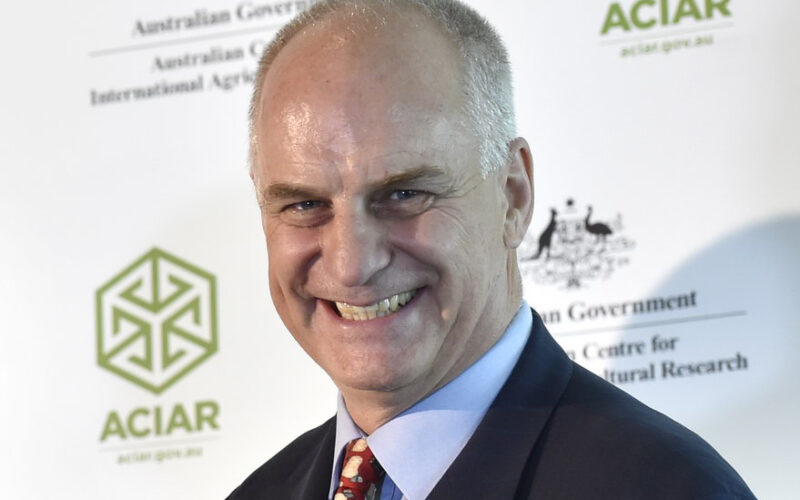Primary sectors in New Zealand and Australia remain locked into a 20th century research and development model that is struggling to adapt to the demands of food producers and consumers to provide solutions for 21st century challenges.
Professor Andrew Campbell, CEO of Australia’s centre for International Agricultural Research, told delegates at the Oceania2035 conference until this model changes, the pace of solutions will not keep up with the rate of climate change induced challenges that require addressing.
“Now we have the ‘three Cs’ – climate, conflict and covid – meaning this is not just another food crisis we face.”
Global food insecurity is at an all-time high, and unlike the crisis of 2007-08 the countries affected have not enjoyed the strong levels of GDP growth that acted as a buffer over that crisis.
The tendency for traditional agricultural research to have a farm-scale, commodity-type focus remains important, but in its most traditional form simply will not cut the mustard in delivering more food off a smaller environmental footprint, he said.
His institute represents the scientific arm of Australia’s foreign affairs portfolio, charged with overseeing 1500 development projects in more than 30 countries, from developing compost toilets in Nigeria to restoring peat forests in Borneo.
“We are trying in Australia to take more of an ‘agri-systems’ approach, and this includes government departments and universities, but there are hardly any government departments that have both food and energy in the same department talking.”
He urged professionals to become more “T shape” and transdisciplinary in their fields, capable of better collaborating outside their natural usual context. He cited the link between food, farmers, and energy as one area.
“It seems obvious we need a decentralised energy grid, one where farmers need to be selling energy, not buying it.”
Such was the volatility of climate changes now taking place, the traditional “incrementalism” approach to development simply will not get food systems to where they need to be.
“Partnerships and partnering are critical. Phased partnerships are also the most successful, 10-15 years out. You learn lessons along the way, and you feed them back into what you are doing.”
That need for collaboration was also emphasised with a NZ angle by Professor Richard Newcomb, chief scientist for Plant & Food Research. He called for new research models with closer engagement between the commercial sector’s need for new technology and Crown-funded researchers’ ability to provide it.
“Business as usual just will not cut it. To tackle these problems we need collaboration the likes of which we have not seen before,” Newcomb said.
He said NZ’s traditional DIY culture means that even within sectors individual entities tend to simply pursue a solution themselves, rather than casting around for a suitable partner.
Plant & Food has enjoyed some successful partnerships over the years, in SunGold and Ruby Red kiwifruit projects with Zespri as partner. The Envy apple was also a project in collaboration with T & G.
“But so far they have been very traditional collaboration projects.”
He urged the sector to cast its net wider in seeking partners, including the likes of IT firms for virtual reality projects, banking and insurance for understanding how climate change may affect customers’ business, and NGOs who “don’t have to save the world on their own”.
The commercial options to cast across are wide, ranging from “positive foods” that have a light environmental footprint but are healthy, to healthy farm ecosystems and greater climate resilience of farms and crops.
Getting farmers on board earlier with research is as valuable as having a commercial partner. Newcomb said NZ is a wonderful place to be a researcher because the end users are themselves very innovative. He pointed to a new apple growing system Plant & Food helped develop, where growers were almost too quick to want to get it up and running –
“which is fine as long as they understand the risks”.
Dr Tanira Kingi, emeritus scientist from Scion, acknowledged there is also a need for more collaboration around funding models.
“We need to have an alternative funding model … we do need to have a system where private sector funds can be leveraged with public funding models to spread the risk across both.”
Difficulties in funding for large hardware projects was also acknowledged, compared to the relative ease with which funding can be raised for software.
“In NZ it seems we have an aversion to large capital spend when it comes to hardware,” said Newcomb.










